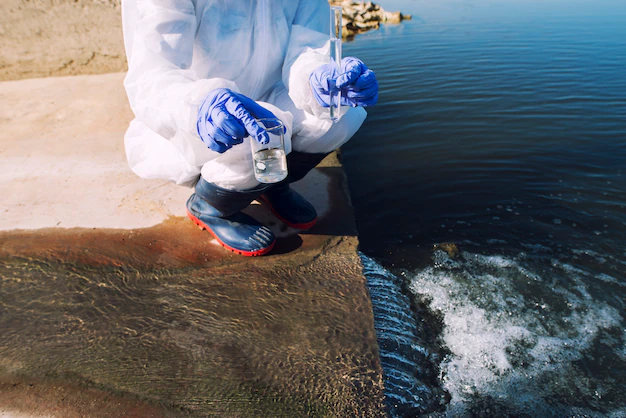- Water treatment specialists are professionals responsible for ensuring the safety and quality of water by treating it to remove impurities and contaminants. They play a critical role in maintaining clean and safe water supplies for various purposes, including drinking, industrial use, and wastewater treatment.
- A water treatment specialist’s primary goal is to ensure that water meets specific quality standards and regulatory requirements. They employ various treatment processes, such as filtration, disinfection, chemical dosing, and sedimentation, to remove pollutants, bacteria, viruses, and other harmful substances from water sources.
- Water treatment specialists work in a variety of settings, including municipal water treatment plants, industrial facilities, laboratories, and environmental consulting firms. They may also be employed by government agencies or private companies involved in water resource management.
- The job of a water treatment specialist requires a strong understanding of water chemistry, biology, and microbiology. They must be knowledgeable about different treatment methods, equipment, and technologies used in the industry. They also need to stay updated on the latest regulations and best practices in water treatment.
- Water treatment specialists often work in teams and collaborate with engineers, chemists, biologists, and other professionals to design, operate, and optimize water treatment systems. They may also be involved in conducting water quality tests and analysis to monitor the effectiveness of treatment processes and ensure compliance with standards.
- Problem-solving skills are essential for water treatment specialists. They need to identify and troubleshoot issues related to water quality, treatment equipment, and system performance. They should be able to analyze data, interpret results, and make informed decisions to resolve any challenges that arise.
- Safety is a significant concern in the field of water treatment. Specialists must follow strict protocols and safety guidelines to protect themselves and others from potential hazards, such as exposure to chemicals, pathogens, and operating heavy machinery. They may also need to wear protective gear and undergo regular training on safety procedures.
- Continuous learning and professional development are crucial for water treatment specialists. They should stay updated on emerging technologies, research findings, and industry advancements to enhance their skills and knowledge. Professional certifications and memberships in relevant organizations can also demonstrate their expertise and commitment to the field.
- Effective communication skills are essential for water treatment specialists. They often interact with colleagues, clients, regulatory authorities, and the general public. They need to communicate technical information in a clear and understandable manner, educate others about water quality issues, and address concerns or questions from various stakeholders.
- The role of a water treatment specialist is vital for public health and environmental protection. By ensuring the provision of safe and clean water, they contribute to preventing waterborne diseases, preserving ecosystems, and supporting sustainable development. Their work is essential for the well-being of communities and the overall quality of life.
Join 'Farmers Mag' WhatsApp Channel
Get the latest Farming news and tips delivered straight to your WhatsApp
CLICK HERE TO JOIN






